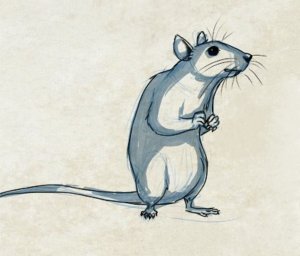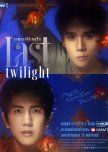A spectucular sunset of a show - vivid, warm, bursting with colour
Yeah, so this one is an absolute masterpiece.
I'm a complete sucker for slow, introspective coming-of-age/love-story hybrids so it's no surprise I fell head over heels in love with this show, but even my personal bias aside this series is, objectively, a damn triumph.
The cinematography, the frankly stunning performances, the recurring narrative themes, the sets... every aspect of this show is spectacular and the creators' deep love for their craft and their attention to detail is woven into its every facet.
Besides tackling the undeniable complex topic of disability, the show explores a variety of difficult and mature themes with great care and insight. It analyses grief in its various forms, complicated familial relationships and the nature of guilt and blame, as well as loneliness and isolation.
My absolute favourite of these themes, however, is the depictions of socio-economic differences and difficulties and the impact this has on every aspect of people's lives. Ever since watching Dark Blue Kiss it's been clear to me that P'Aof has a chip on his shoulder about the class divide in general and how it relates to queerness specifically and this is incredibly apparent here as well, in the portrayal of Mhok and his relationships to the people and world around him, as well as to the concepts of masculinity, queerness, and success. It may not be a main focus of the story, but a big part of Mhok's characters development stems from him coming to terms with his experiences of going through life as a former convict, society's view of him, and how this affects his perception of himself. It is nothing short of spectacular and I deeply appreciate the inclusion of these plot lines, however minor they may be.
And the characters... my god, the characters. If it wasn't already obvious from all my fawning in the previous paragraph, I am absolutely smitten with Mhok in particular, but quite honestly there isn't really anyone in the entire cast of characters whom I don't like or whose inclusion feels unnecessary.
Further personal favourites include Phojai - who is wonderfully multifaceted and deeply human character and whose relationship with Mhok means a whole lot to me personally - and Night, who is clearly a deeply traumatised person that carries his guilt around with him like a damn yoke but tries so incredibly hard anyway. His little tortured face will probably continue to ever so slightly haunt me for the rest of my life, to be honest.
And then there's Day who, in my opinion, is a surprisingly misunderstood and contentious character. I personally do not have any sort of significant visual impairment so take my opinions on the topic with a grain of salt, but I am firmly in the camp of "the disability rep in this show is really good, actually".
If I understand correctly, the showrunners made sure to get a lot of input from blind and otherwise disabled folks in order to depict the realities of their lives accurately and respectfully and it shows. The writing is never preachy or patronising, and Day isn't simply a tragic yet inspiring figure for the audience to project onto, no. He is a well fleshed-out, three-dimensional character with believable and deeply human flaws. His story is inspiring not because or in spite of his blindness, it's inspiring because his struggles with loneliness and isolation, with anger, resentment, and the complete collapse of his self-image are deeply relatable and pretty much universally applicable.
For further insight on this topic is especially in light of the show's ending, I highly recommend having a look at the "Some thoughts on the ending" topic in the Recent Discussions section, it might help anyone still feeling conflicted help sort out their thoughts :). Beware of spoilers though, obviously.
My one gripe with the story is how rushed the last episode feels in certain respects. The conflict feels realistic and makes sense for the characters, but really, couldn't we have brought it up just a few episodes earlier instead of keeping the dreaded episode 11 curse alive? I really think that showing more of Mhok's character growth as well as him dealing with his PTSD would have made the story feel more complete and well-rounded as well as helping to keep the pacing consistent.
In all honesty though, this is a relatively minor complaint compared to how fantastic this show is as a whole and it thankfully didn't even take away too much from my enjoyment of the ending.
I think I shed real actual tears when I saw Mhok had removed the little bandage from Rung's car so on the whole things balanced out for me.
In short, this is one of the most well-written, thoughtful queer shows in recent years. It is a timeless tale about hope and the resilience of the human spirit and if that sounds a bit too pretentious then let me assure you: it is, at its heart, a simple story about falling in love. Falling in love with people, with yourself, and with the world.
Go watch it already, you won't regret it, I promise!
I'm a complete sucker for slow, introspective coming-of-age/love-story hybrids so it's no surprise I fell head over heels in love with this show, but even my personal bias aside this series is, objectively, a damn triumph.
The cinematography, the frankly stunning performances, the recurring narrative themes, the sets... every aspect of this show is spectacular and the creators' deep love for their craft and their attention to detail is woven into its every facet.
Besides tackling the undeniable complex topic of disability, the show explores a variety of difficult and mature themes with great care and insight. It analyses grief in its various forms, complicated familial relationships and the nature of guilt and blame, as well as loneliness and isolation.
My absolute favourite of these themes, however, is the depictions of socio-economic differences and difficulties and the impact this has on every aspect of people's lives. Ever since watching Dark Blue Kiss it's been clear to me that P'Aof has a chip on his shoulder about the class divide in general and how it relates to queerness specifically and this is incredibly apparent here as well, in the portrayal of Mhok and his relationships to the people and world around him, as well as to the concepts of masculinity, queerness, and success. It may not be a main focus of the story, but a big part of Mhok's characters development stems from him coming to terms with his experiences of going through life as a former convict, society's view of him, and how this affects his perception of himself. It is nothing short of spectacular and I deeply appreciate the inclusion of these plot lines, however minor they may be.
And the characters... my god, the characters. If it wasn't already obvious from all my fawning in the previous paragraph, I am absolutely smitten with Mhok in particular, but quite honestly there isn't really anyone in the entire cast of characters whom I don't like or whose inclusion feels unnecessary.
Further personal favourites include Phojai - who is wonderfully multifaceted and deeply human character and whose relationship with Mhok means a whole lot to me personally - and Night, who is clearly a deeply traumatised person that carries his guilt around with him like a damn yoke but tries so incredibly hard anyway. His little tortured face will probably continue to ever so slightly haunt me for the rest of my life, to be honest.
And then there's Day who, in my opinion, is a surprisingly misunderstood and contentious character. I personally do not have any sort of significant visual impairment so take my opinions on the topic with a grain of salt, but I am firmly in the camp of "the disability rep in this show is really good, actually".
If I understand correctly, the showrunners made sure to get a lot of input from blind and otherwise disabled folks in order to depict the realities of their lives accurately and respectfully and it shows. The writing is never preachy or patronising, and Day isn't simply a tragic yet inspiring figure for the audience to project onto, no. He is a well fleshed-out, three-dimensional character with believable and deeply human flaws. His story is inspiring not because or in spite of his blindness, it's inspiring because his struggles with loneliness and isolation, with anger, resentment, and the complete collapse of his self-image are deeply relatable and pretty much universally applicable.
For further insight on this topic is especially in light of the show's ending, I highly recommend having a look at the "Some thoughts on the ending" topic in the Recent Discussions section, it might help anyone still feeling conflicted help sort out their thoughts :). Beware of spoilers though, obviously.
My one gripe with the story is how rushed the last episode feels in certain respects. The conflict feels realistic and makes sense for the characters, but really, couldn't we have brought it up just a few episodes earlier instead of keeping the dreaded episode 11 curse alive? I really think that showing more of Mhok's character growth as well as him dealing with his PTSD would have made the story feel more complete and well-rounded as well as helping to keep the pacing consistent.
In all honesty though, this is a relatively minor complaint compared to how fantastic this show is as a whole and it thankfully didn't even take away too much from my enjoyment of the ending.
I think I shed real actual tears when I saw Mhok had removed the little bandage from Rung's car so on the whole things balanced out for me.
In short, this is one of the most well-written, thoughtful queer shows in recent years. It is a timeless tale about hope and the resilience of the human spirit and if that sounds a bit too pretentious then let me assure you: it is, at its heart, a simple story about falling in love. Falling in love with people, with yourself, and with the world.
Go watch it already, you won't regret it, I promise!
Vond je deze recentie nuttig?


 1
1



